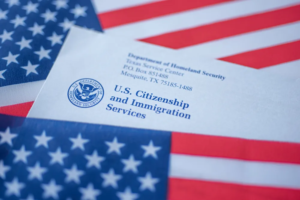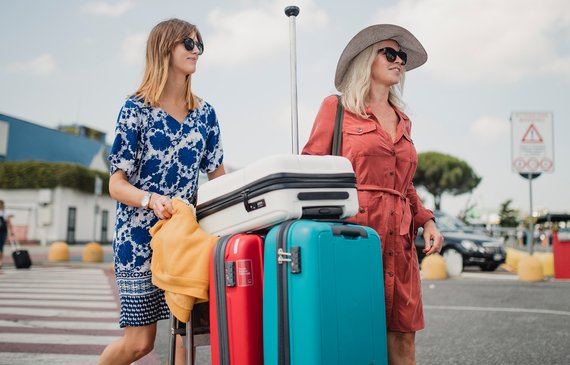Moving to a new country is an exciting yet challenging adventure, especially if you’re moving to Australia from USA. Whether it’s the appeal of beautiful beaches, vibrant cities, or a laid-back lifestyle, Australia has become a popular destination for expats from all over the world, including many Americans. This guide covers the key points you’ll want to know as you prepare for your big move!
Table of Contents
ToggleUnderstand the Visa Requirements

One of the first steps to moving to Australia is securing the right visa. Australia offers several visa options based on employment, skills, and family ties. Some popular visa types for Americans moving to Australia include:
Skilled Independent Visa (Subclass 189): Ideal for individuals with certain skill sets that are in demand in Australia.
Employer-Sponsored Visa (Subclass 482 or 186): If you have a job offer from an Australian employer, they may sponsor you.
Student Visa (Subclass 500): For those planning to study at an Australian institution.
Working Holiday Visa (Subclass 417): Available if you’re under 30 and want to work casually while traveling in Australia.
Each visa type has specific requirements and application processes, so it’s essential to research which visa best suits your situation.
Research the Cost of Living
Australia can be pricey, especially in major cities like Sydney and Melbourne. Understanding the cost of living can help you budget effectively. Here are a few factors to consider:
Housing: Rent varies significantly by city and neighborhood. Expect higher rental costs in Sydney and Melbourne, while cities like Brisbane, Perth, and Adelaide are more affordable.
Groceries and Dining: Groceries can be more expensive than in the U.S., but local markets and discount stores like Aldi help keep costs down. Eating out is also pricier, but the quality of food and service is typically excellent.
Transportation: Australia’s public transportation system is reliable, especially in major cities. However, many Americans find owning a car convenient, especially in suburban or rural areas.
Plan for Healthcare and Insurance
Australia has a universal healthcare system called Medicare, which provides free or low-cost healthcare services. However, unless you’re a permanent resident or hold certain work visas, you may not qualify for Medicare and should look into private health insurance.
Private insurance can be pricey, but it often covers services beyond Medicare’s scope, like dental and optical care. Some employers offer health insurance benefits to their employees, so it’s worth checking if this is an option for you.
Embrace the Lifestyle Differences
Australians are known for their relaxed lifestyle, love of the outdoors, and sports culture. Moving from the hustle of American cities to the laid-back Australian vibe may require some adjustment, but it’s generally a welcome change. A few cultural differences to keep in mind:
Work-Life Balance: Australians value a good work-life balance. You’ll likely find more paid vacation days and shorter work hours compared to the U.S.
Outdoor Lifestyle: Beaches, national parks, and outdoor sports are integral parts of Australian culture. Australians love outdoor gatherings and BBQs, so be prepared to spend more time outdoors.
Sports and Social Events: Rugby, cricket, and Aussie Rules Football (AFL) are popular, and people often gather to watch these sports. You’ll quickly find sports fans are very passionate in Australia!
Adjust to Driving and Road Rules
Australians drive on the left side of the road, which may feel strange at first. Take time to get comfortable with the difference, especially if you plan to drive often. It’s also helpful to familiarize yourself with Australian road rules and license requirements, which vary by state.
In some cases, you can use your U.S. license for a limited time before needing an Australian license. If you’re staying long-term, check the specific requirements for transferring your license in your state or territory.
Find Housing and Settle In

Finding a place to live in Australia can take time. Many expats start by renting short-term accommodations to explore neighborhoods before committing to a lease. When searching for a place:
Neighborhood Research: Each city has distinct neighborhoods catering to various lifestyles. Sydney has bustling beachside suburbs, Melbourne boasts artsy and multicultural districts, and Brisbane offers riverside living.
Rental Market: Be prepared to act quickly on rental listings, as the market can be competitive. Sites like Domain and Realestate.com.au are excellent for finding listings.
Adapting to a New Culture
Australians are known for their friendly, easy-going nature and sense of humor. Socially, they value inclusivity and openness. You might notice some differences in social norms:
“Mate” Culture: Australians often refer to friends and even strangers as “mate.” It’s a friendly term that symbolizes the close-knit culture and friendliness in daily interactions.
Outdoor Lifestyle: With warm weather year-round in many places, Australians spend a lot of time outdoors. Activities like barbecues (also called “barbies”), surfing, hiking, and outdoor sports are common.
Language: Although Australians speak English, there are plenty of unique phrases, slang words, and even humor that might take getting used to. Don’t hesitate to ask if you don’t understand something; Aussies are typically happy to explain.
Navigating the Job Market

If you don’t have a job lined up, Australia’s job market is competitive but offers many opportunities, especially in sectors like healthcare, IT, construction, and engineering. Networking, both online and in-person, can be valuable for finding employment. LinkedIn and Australian job sites like SEEK and Indeed are great resources.
Getting Your Finances in Order
Opening an Australian bank account is straightforward. Major banks like Commonwealth Bank, NAB, ANZ, and Westpac are well-established, and most allow you to open an account even before you arrive.
Transferring funds from the U.S. to Australia involves some fees, so explore options to minimize them. Currency transfer services like Wise (formerly TransferWise) often offer better rates than traditional banks.
Prepare for the Time Zone Difference
One thing you’ll quickly realize about moving to Australia is the time difference. Depending on where you are in the U.S., Australia can be up to 17 hours ahead. Coordinating calls and staying in touch with friends and family back home requires planning.
Understand Your Tax Obligations
Moving internationally can complicate your tax obligations. The U.S. requires citizens to file taxes on global income, even if you’re abroad. Meanwhile, Australia has its own tax system, and you may be considered a tax resident there. It’s wise to consult a tax professional familiar with U.S. and Australian tax laws to ensure compliance in both countries.
Final Thoughts
Moving to Australia from USA is an adventure that offers new perspectives and experiences. While there are challenges to navigate, Australia’s friendly people, scenic landscapes, and unique lifestyle make it a worthwhile endeavor. By preparing thoroughly and embracing the cultural differences, you’ll find yourself right at home in this beautiful country. Safe travels, and welcome to Australia!
FAQs about Moving to Australia from USA
How do I get a visa for moving to Australia from USA?
There are various visas available for moving to Australia from USA, like work, skilled, and family visas. Research requirements for each to find the best fit.
Is moving to Australia from the USA expensive?
Moving to Australia from USA can be costly due to factors like housing, healthcare, and transportation, especially in major cities like Sydney and Melbourne.
Can I use my US driver’s license after moving to Australia from USA?
After moving to Australia from USA, most states allow you to use your US license for a limited period, after which you may need an Australian license.
How is the healthcare system when moving to Australia from USA?
When moving to Australia from USA, remember that healthcare differs; non-residents may need private insurance if they aren’t eligible for Medicare.
What’s the job market like after moving to Australia from USA?
The job market for those moving to Australia from USA is diverse, with strong demand in healthcare, IT, and engineering fields. Networking can be key.
How does the culture change when moving to Australia from USA?
Moving to Australia from USA often means adapting to a more laid-back, outdoor-focused lifestyle, with unique sports and social customs.

